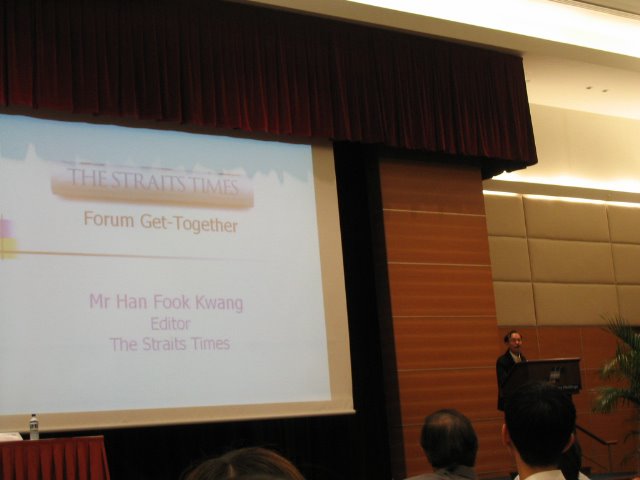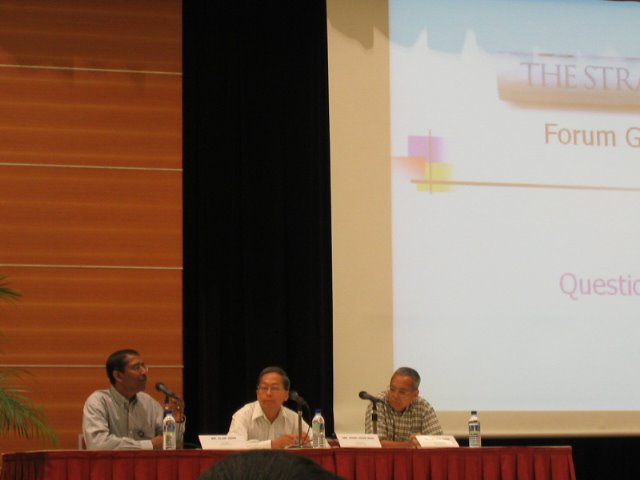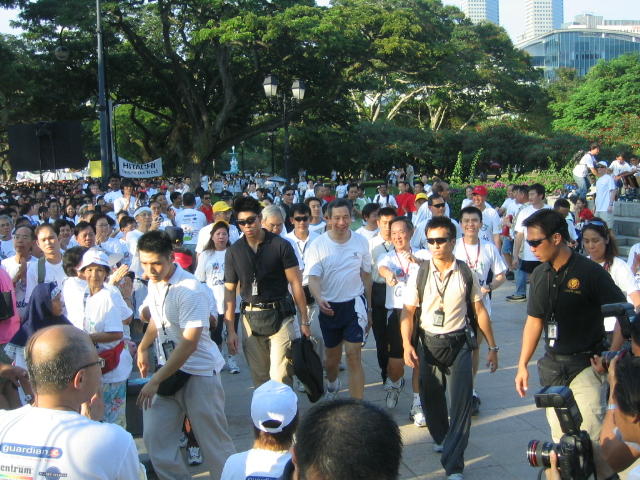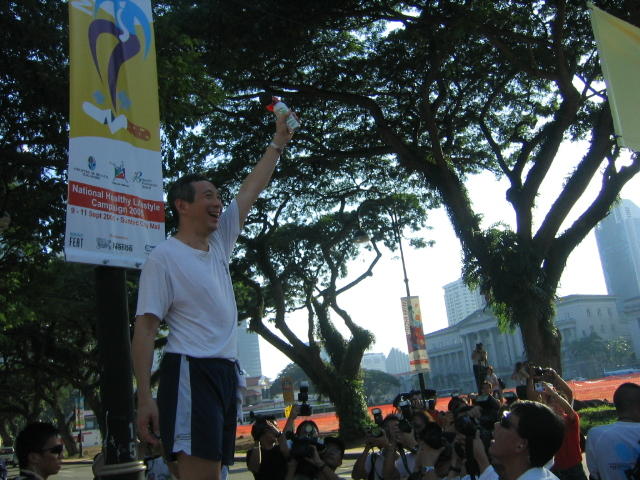[blogging rules]this is the unedited version of my article for the straits times YouthINK section.....
The recent cases of authorities taking action against bloggers have driven a serious message across.
Bloggers like first-year Singapore Polytechnic student Chew Shermain, 17, are more careful these days.
"I would still blog on issues that are appropriate but won't go overboard and criticise others. My entries are not on serious issues but just posts about my life," she added.
Her course mate Bryan Koh, 17, said that he would not post comments targetted at the Government and would be more responsible when blogging lest he gets into trouble with the law.
Such views come after several incidents of bloggers getting into trouble for their comments on the Internet.
One blogger was nearly slammed with a defamation suit for making untrue remarks online. Several students were also reprimanded for posting offensive posts about their teachers on their blogs.
Bloggers feel that blogs are personal diaries and that they can write whatever they want. However, lawyers say that a blog, unlike a physical diary kept by a person, cannot be considered personal space as it is accessible to all in any part of the world.
YouthInk asked Keystone Law Corporation director Bryan Tan what was permissible.
He said: “Bloggers have to understand that blogs, by their nature, are on an open network and anyone can read what is posted. A private space is one that can allow or prevent others from gaining access and that does not apply to the Internet.
“In a nutshell, any laws that apply offline also apply to the online world.”
For example, there are defamation laws to protect individuals' reputation.
If vulgarities are hurled at someone publicly, the person offended may want to sue the other party for slander or even claim an insult of modesty. These include using pictures, visual images and gestures, which impute unchastity or adultery to any woman or girl.
Likewise, untrue comments or defamatory remarks that are published on the Internet or disseminated via email are bound by the same laws. Further, a remark made on the Internet may have a greater effect as compared to verbal ones.
Recently, three bloggers were hauled to court for making seditious remarks on forums and blogs. They were charged because the comments they made were inflammatory and were directed at Malays and Muslims.
The law defines seditious tendency as promoting feelings of ill-will and hostility between different races or classes of the population of Singapore. It also encompasses bringing into hatred or contempt or to excite disaffection against the Government.
Such laws are in place to protect the country's multi-religious and multi-racial harmony. They exist so that a repeat of the Maria Hertogh riots in 1950 and racial riots in 1964 would never happen.
However, if these outcries are made through lawful means and are not seen as anti-Government they may be just fine.
Mr Tan points out that one of the lawful ways citizens can make their views heard is to sign online petitions - just like those who had other views on the casino idea proposed by the Government.
Other laws that apply to the Internet also include copyright laws.
For example, reproducing published works without the consent of the copyright owner is an infringement of such laws.
Associate Professor Ng Siew Kuan of National University of Singapore’s Law Faculty added: "In general, some cases of fair dealing with works for certain purposes under the Copyright Act may be a defence where the conditions stated in the Copyright Act are satisfied (for example acknowledgement of source).
"However, in cases outside of the specific defences provided under the Copyright Act, the mere acknowledgement of source may not, by itself, be sufficient to avoid infringement since copying of a substantial part of a work (namely, qualitatively) may amount to
copyright infringement."
So how can bloggers protect themselves from breaking these laws?
Perhaps the easiest is to practise self-regulation and be responsible for your posts.
Content providers, forum moderators and bloggers should look out for irresponsible comments posted on tagboards and their websites.
According to Nanyang Technological University's Dean of School of Communication and Information, Associate Professor Ang Peng Hwa, the owner of the website is held responsible for anonymous posts as well. However, he feels that owners should not be liable if they act responsibly to remove such posts after they have been notified.
Although is not known how authorities track down these errant postings, recent events have proven that they can if they want to.
Even Prime Minster Lee Hsien Loong himself assured that action would be taken against those who make inflammatory racist remarks. He stressed that it is against the law to stir up distrust and enmity between the races whether online or offline.
Bloggers like third-year Singapore Polytechnic student Goh Biao Yong, 20, believes that educating bloggers on such rules is the key.
"Though it is our own blog and own space, bloggers should be mindful that there are a lot of people reading their blogs. The laws are there for a purpose and must not be taken for granted," he noted.
Undergraduate C S Goh, 21, added that though there is freedom of speech on blogs, bloggers should be mindful not to post offensive material.
Now that more light has been shed on the rules bloggers should be aware of, the discretion still lies within their hands - so think twice before clicking the "publish" button.






